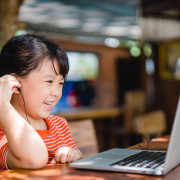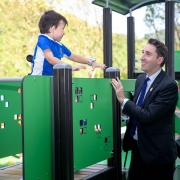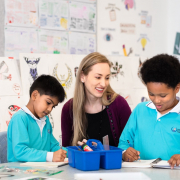The Future of Education: A parental perspective
Students across different age groups face unique challenges when it comes to online schoolingStriving through social unrest and coronavirus, the past academic year has been both challenging and rewarding. Tough times teach us the best lessons and 2020 has taught us the importance of resilience, adaptability and flexibility in the face of adversity.
For the first time, online education is rolled out across the city on a mass scale. Having experienced remote learning, we’ve seen the value in face-to-face interactions and delved into the possibilities of virtual connections. We took this opportunity to challenge ourselves to imagine how schools would look like 20 years from now. Introducing ‘The Future of Education’ series, where we asked teachers, technology professionals, students and parents to share their thoughts, concerns and experiences of adapting to this new era of learning.
In our fourth and final instalment, we chat with a mother of three to find out how children of various ages have adjusted to remote learning.
Mother of three Karen Ng
With children aged 11, 16 and 19, Karen Ng can easily identify what challenges each age group faces while online learning.
For her youngest child, face-to-face lessons usually include interactive play and active learning. “They find it hard to sit still for long periods of time, with no interaction the classes can seem a bit dull,” Karen says. Her oldest daughter, aged 16, has found subjects like maths challenging, as it requires repeated explanations and practice which is difficult to do online.
“With Zoom or Google Hangouts, the kids are more nervous to ask questions,” she says.
When trying to complete worksheets and exercises, Ng noticed that her daughter didn’t quite grasp a full understanding of the concepts and believes a classroom setting is more interactive and discussion-provoking.
Social distancing also means kids are studying alone and not seeing their friends as much. “We have to think about what activities they can do, I still let them see their friends but not as frequently,” she says, adding it is important for parents to help their kids stay connected with peers.




